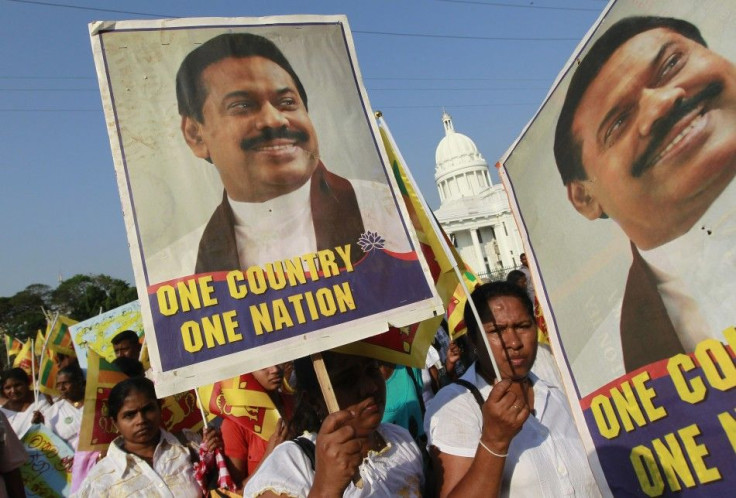Sri Lanka Furious Over UN War-Crimes Resolution

Sri Lanka has rejected a United Nations Human Rights Council resolution urging the country to look into alleged war crimes committed by the military in 2009.
We will not, under any circumstances, allow others to impose on us their advice or solution, Acting Foreign Minister Dew Gunasekera told the Sri Lankan parliament, according to an Agence France-Presse report at Pakistan's Dawn.com.
The resolution, relating to Sri Lanka's war with the Tamil Tigers separatist group, passed the UNHRC on Thursday. Twenty-four nations voted for it, 15 nations voted against it, and eight abstained.
After 30 long years of instability and violence, we have achieved stability and peace. We need to be given time to further consolidate the clear progress that has been achieved in a short period of three years, MP Mahinda Samarasinghe stated.
Angry about the resolution, Sri Lanka's government and media resorted to name-calling, the brunt of which was directed at India, the only South Asian country to vote in favor of the resolution.
An editorial in the Sri Lankan paper the Island called India a loser in Geneva that had to be carried by the United States. The paper added that the U.S. and its friends should be ashamed that they, in spite of their combined might, could muster only 24 votes.
The cornered badger bravely fought the mastiffs of neo-imperialism and went on fighting yesterday, the Island said, referring to Sri Lanka as the badger.
India has defended its vote, but also stated that the resolution was less about the Sri Lankan government than it was about helping a persecuted minority.
We have to weigh the pros and cons. ... What we did is in line with our stand ... We don't want to infringe upon [the] sovereignty of Sri Lanka, but our concerns should be expressed so the Tamil people can get justice and live a life of dignity, Indian Prime Minister Manmohan Singh said.
The truth is that India has not really locked civilians in a place and started shelling the hell out of them in order to end the battle, Meenakshi Ganguly, South Asia director at Human Rights Watch, said in defense of India. India's not declared an area to be a safe zone and told its civilians to gather there and then shelled those, including hospitals and schools.
Some in Sri Lanka are using the resolution to rail against journalists who participated in a UNHRC session, calling them traitors who betrayed the motherland. Mervyn Silva, the minister of public coordination and public affairs, threatened to break the limbs of activists and journalists who spoke out against the government, according to the ColomboPage. Other Sri Lankans have launched a boycott against American products.
There must be no reprisals against Sri Lankan human-rights defenders in the aftermath of yesterday's adoption by the Human Rights Council of a resolution on Sri Lanka, said the UN High Commissioner for Human Rights.
The United Nations estimates that about 100,000 people died during the war between the government and the Tigers, including as many as 40,000 civilians during the final battles in May 2009.
© Copyright IBTimes 2025. All rights reserved.





















